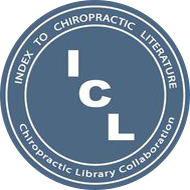Background: Forward head posture (FHP) is a common condition where the head appears to be positioned in front of the vertical midline of the body. FHP is associated with shortening of the neck extensors and pectoral muscles, and the deep neck flexors and shoulder retractors are weakened. FHP is also found to cause decreases in respiratory function. Few clinical trials have investigated the effects of combination treatments to alleviate these problems. The aim of this study was to examine the effects of combination of traditional Thai massage, scapular stabilization exercise, and chest mobilization on forward head angle (FHA), forced vital capacity (FVC), and cervical flexion in subjects with FHP.
Methods: Forty-eight subjects with FHP were randomly allocated to a treatment group receiving a Combination of Traditional Thai massage, Scapular stabilization exercise, and Chest mobilization (CTSC group) (n = 24) and a control group (relaxed by lying supine) (n = 24). FHA, FVC, and cervical flexion were measured before and after the four-week intervention (Week 4) and one month after the intervention period (Week 8).
Results: The CTSC group showed statistically significantly greater improvement in FHA and cervical flexion than the control group at Week 4 (FHA, mean difference − 6.05; 95% CI − 8.03, − 4.07; cervical flexion, mean difference 6.84; 95% CI 3.14, 10.55) and Week 8 (FHA, mean difference − 4.64; 95% CI ( − 6.71, − 2.58); cervical flexion, mean difference 5.21; 95% CI 0.84, 9.58). There were no significant between-group differences in FVC at week 4 (mean difference 0.09; 95% CI − 0.06, 0.23) and week 8 (mean difference 0.04; 95% CI − 0.11, 0.19).
Conclusion: This study showed that CTSC had a positive effect on FHA and cervical flexion in subjects with FHP.
Trial registration: Thai Clinical Trials Registry (TCTR) (Identification number: TCTR20211119001), registered 19 November 2021; https://www.thaiclinicaltrials.org/show/TCTR20211119001.
Author keywords: Thai massage - Scapular stabilization exercise - Chest mobilization - Forward head posture
This abstract is reproduced with the permission of the publisher; click on the above link for free full text. Online access only.
|
